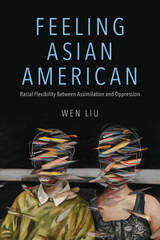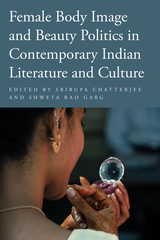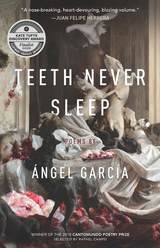
Finalist, 2019 PEN Open Book Award
Winner, 2019 American Book Award, Before Columbus Foundation
Drawing on folklore and fantasy, childhood memory and hallucination, and marked by a tone of piercing divulgence, Teeth Never Sleep nimbly negotiates the split consciousness a culture of dominance requires of men (especially men of color), highlighting the fissures in selfhood created by the pressure to seek submission over intimacy while still wanting desperately to be loved, and tracing the contorted route by which emotional pain finds expression in violence. “The night my girlfriend tells my mother I beat her, / I feel betrayed. This was a secret we kept between us. / That night, I was no longer my mother’s loving son,” the speaker in one poem confesses, and later “I never wanted to be this kind of animal.”
And yet, through the lens of Ángel García’s sharp imagining, men frequently appear as beasts (sometimes literally)—as hybrid beings both tender and brutal—that he steadfastly refuses to let off the hook as he obsessively catalogs the origins of toxic masculinity (the first time I made my mother cry, the first time I pitied my father, the first time I saw a girl bleed) and its quiet, lasting effects: “Still a part of me believes a / man shouldn’t cry in front of a woman, even in the dark.”
In a culture of weaponized masculinity, the poems in Teeth Never Sleep make a doorway of a wound, inviting readers to walk through and sit down inside the raw pain they harbor to meditate on two central, urgent questions: what it means to be a man and how, as a man, to love.
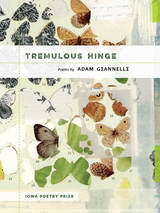
From the difficulties of stuttering to teetering attempts at love, from struggling to order a hamburger to tracing the deckled edge of a hydrangea, these poems tumble and hum, revealing a hinge between word and world. Ultimately, among lofting waves, collapsing hands, and darkening skies, words themselves—a stutterer's maneuvers through speech, a deceased grandfather’s use of punctuation—become forms of consolation. From its initial turbulence to its final surprising solace, this debut collection mesmerizes.
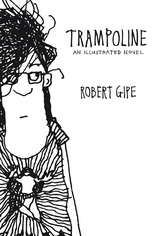
Dawn Jewell is fifteen. She is restless, curious, and wry. She listens to Black Flag, speaks her mind, and joins her grandmother’s fight against mountaintop removal mining almost in spite of herself. “I write by ear,” says Robert Gipe, and Dawn’s voice is the essence of his debut novel, Trampoline. She lives in eastern Kentucky with her addict mother and her Mamaw, whose stance against the coal companies has earned her the community’s ire. Jagged and honest, Trampoline is a powerful portrait of a place struggling with the economic and social forces that threaten and define it. Inspired by oral tradition and punctuated by Gipe’s raw and whimsical drawings, it is above all about its heroine, Dawn, as she decides whether to save a mountain or save herself; be ruled by love or ruled by anger; remain in the land of her birth or run for her life.
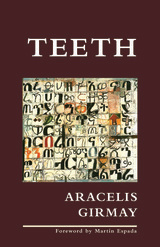
LOVE,
you be the reason why
we swagger & jive,
lift the guitar, & pick up the axe.
when it is i tilt my hat to the side,
wearing colors & perfumes, it's cause, love,
you did it to me. oh,
you do sure turn my tongue to fiddle,
& make the salt taste sweet. man,
i don't need a rooster, or peacock even,
to help me spend my time, nope,
just you, love, right & solid as
a line.
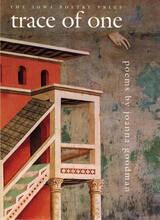
In Trace of One,real geographies merge with spiritual ones, just as details of the speaker’s physical and emotional worlds intertwine with the transcendent realms of science, religion, and myth. Joanna Goodman’s poems share a sense of spatial and temporal displacement—they are love poems to a place, whether it be a field, a room, or a paradise—they celebrate their subjects, but they are also poems of grief and solitude. The poems resonate with ethereal echoes paradoxically emitted by an increasingly demystified world in which mechanical explanations for the workings of the human mind and body bump up against the mystery and obliqueness of the soul.
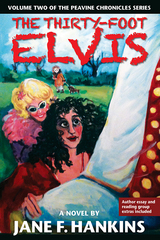
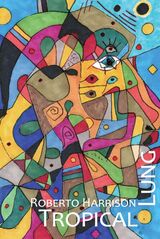
Tropical Lung shows how apocalypses can give us the keys to new futures and how aloneness and silence can lead us to live multidimensionally, beyond the boundaries of time and space. The screen makes itself known and offers a means of kinship, but it is also removed by song and born in the red of encounter and the dark of seven pupils. These wild visions coalesce into a fantastic vision of a future both technological and communal.
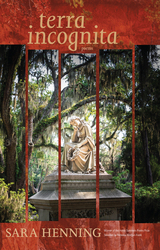
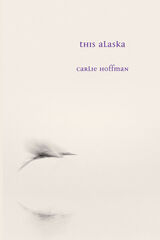
To live in an Alaska of the mind is to map the imagined cartography of winter on all that is physical. To dwell perpetually in a symbolic cold, and to emerge, with grace, unscathed. This book questions what it means to live and love in such a buried season. This Alaska interrogates all that emotional and physical intimacy cannot salvage or keep warm. Death and dreams are at the very center of this book. But life — and all it entails and circles and loses and loves — is at its heart.

In Tell the World You’re a Wildflower, each character must decide what to tell, whether to tell it, and to whom to tell it. Each struggles with questions of identity and truth, trying to understand who she is and what holds true for her. Some tell their stories plainly, directly, others more obliquely, nesting one within another. Anchored in the tradition of southern storytelling, these women contend with loss, change, and growth while going to church, school, and prison, navigating love and sex, and worrying too much about what people might think.
Yet these women generally refuse to behave, and they wander in and out of each other’s stories just like people do in small towns across the South. Small town lives are always interconnected: your third-grade teacher is your new neighbor’s aunt and the boy you dated your senior year falls from political grace after being caught in a hot tub with your second cousin. Though they may have had little say in where they were planted, Horne’s protagonists nevertheless do their best to bloom.
Rich, multifaceted, and unforgettable, Tell the World You’re a Wildflower is the work of a veteran explorer of the twentieth and twenty-first century South. Horne’s quest to understand her culture through decades of reading and observing has now yielded these narratives that imaginatively and insightfully enter the hearts and minds of southern women.
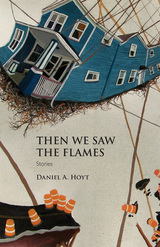
Sometimes magical, sometimes realistic, sometimes absurd, these stories reveal people teetering on the dangerous edge of their lives. In "Amar," a Turkish restaurant owner deals with skinheads and the specter of violence that haunts his family. In "Boy, Sea, Boy," a shipwrecked sailor receives a surreal visitor, a version of himself as a child. In "The Collection," a father and son squander a trove of bizarre and fanciful objects. And in "The Kids," a suburban couple grasp for meaning after discovering children eating from their trash.
In each of these stories, characters find themselves challenged by the political, cultural, and spiritual forces that define their lives. With a clear eye and a steady hand, Hoyt explores a fragile balance: the flames—fueled by love, loss, hope, and family—shed new light on us. Sometimes we feel warmth, and sometimes we simply burn.


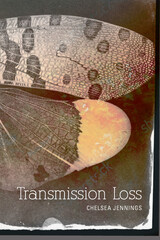
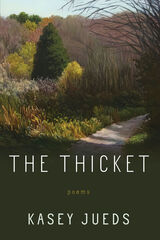
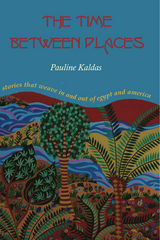
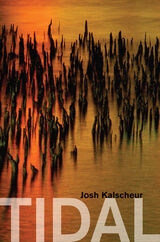
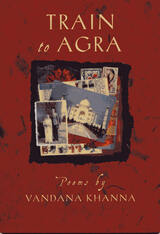
Calling upon two cultures, Vandana Khanna’s Train to Agra meditates on the effects of displacement and expatriation on the construction of a young Indian American woman’s identity. The physical journeys undertaken by the speaker reflect her inner journey from immigrant child to Indian American woman, struggling to find her place between India and America, Krishna and Jesus, samosas and hamburgers. The speaker constantly tries to recapture visions, smells, and sounds of her childhood and her travels, but cannot do so without imagination. Her memory fails her, so through metaphor she invents her past as it should have been. Traveling through her reflections on childhood, fate, faith, death, and belonging, she comes to accept her reality as a construct of lived memories and wished-for fantasies.
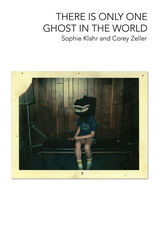

Journalist Mary Kudenov set out to find the true stories behind this “end-of-the-road” culture. Through her essays, we meet Alaskans who live outside the common adventurer narrative: a recent graduate of a court-sponsored sobriety program, a long-timer in the Hiland Mountain Correctional Center for women, a slum-landlord’s emancipated teenage daughter, and even a post-rampage spree killer. Her subjects struggle with poverty and middle-class aspirations, education and minimum wage work, God and psychology. The result is a raw and startling collection of direct, ground-level reporting that will leave you deeply moved.
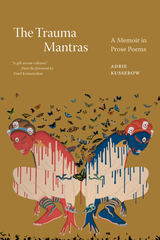

Professor Jay Ladin made headlines around the world when, after years of teaching literature at Yeshiva University, he returned to the Orthodox Jewish campus as a woman—Joy Ladin. In Through the Door of Life, Joy Ladin takes readers inside her transition as she changed genders and, in the process, created a new self.
With unsparing honesty and surprising humor, Ladin wrestles with both the practical problems of gender transition and the larger moral, spiritual, and philosophical questions that arise. Ladin recounts her struggle to reconcile the pain of her experience living as the “wrong” gender with the pain of her children in losing the father they love. We eavesdrop on her lifelong conversations with the God whom she sees both as the source of her agony and as her hope for transcending it. We look over her shoulder as she learns to walk and talk as a woman after forty-plus years of walking and talking as a man. We stare with her into the mirror as she asks herself how the new self she is creating will ever become real.
Ladin’s poignant memoir takes us from the death of living as the man she knew she wasn’t, to the shattering of family and career that accompanied her transition, to the new self, relationships, and love she finds when she opens the door of life.
2012 Finalist for the National Jewish Book Award for Biography, Autobiography, or Memoir
“Given her high-profile academic position, Ladin’s transition was a major news story in Israel and even internationally. But behind the public story was a private struggle and learning experience, and Ladin pulls no punches in telling that story. She offers a peek into how daunting it was to learn, with little support from others, how to dress as a middle-aged woman, to mu on make-up, to walk and talk like a female. She provides a front-row seat for observing how one person confronted a seemingly impossible situation and how she triumphed, however shakingly, over the many adversities, both societal and psychological, that stood in the way.”—The Gay and Lesbian Review Worldwide
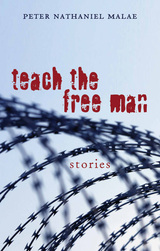
The twelve stories in Teach the Free Man mark the impressive debut of Peter Nathaniel Malae. The subject of incarceration thematically links the stories, yet their range extends beyond the prison’s barbed wire and iron bars. Avoiding sensationalism, Malae exposes the heart and soul in those dark, seemingly inaccessible corridors of the human experience.
The stories, often raw and startlingly honest, are distinguished by the colloquial voices of California’s prison inmates, who, despite their physical and cultural isolation, confront dilemmas with which we can all identify: the choice to show courage against peer pressure; the search for individual rights within a bureaucracy; and the desperate desire for honor in the face of great sacrifice. These stories present polished and poetic examples of finding something redemptive in the least among us.
The book’s epigraph by W. H. Auden, from which the book takes its title, exemplifies the spirit of these dynamic stories:
In the deserts of the heart
Let the healing fountain start.
In the prison of his days
Teach the free man how to praise.

Making use of a diverse array of narrative modes, settings, and voices, these stories traverse space and time, moving from Egypt during the Second World War to modern-day Liberia and an unfamiliar Los Angeles. The title story, "Termination Shock," offers a lyrical exploration of two traumatic moments in a woman's life that occur decades apart and continue to reverberate in humorous and poignant ways. Janice Margolis shows us characters on the precipice of change—including a narrator in fevered quarantine following the death of her mother from Ebola, a cross-cultural love in a swiftly transforming Syria, and the desolation of the Berlin Wall, which from its various sectors and coordinates, confesses its crimes and mourns its destruction.
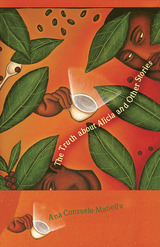
Alicia is not the only woman with problems. In these stories about contemporary and traditional Latinas, Ana Consuelo Matiella uses sensitivity and wit to address issues faced by women of color and women everywhere—issues largely having to do with love: between men and women, mothers and daughters, women and friends. In engaging stories about family myths, gossip, and lies, comadres converse over afternoon café con leche. "I'm sure that I was the only wife whose husband was teaching their daughter to do Cheech Marin imitations," remarks one of Matiella's characters. Another sings the praises of the chocolate milkshake diet: "That’s one advantage of living on the border. You get to try all the latest gringo inventions as soon as they hit the streets." Through encounters with angels, conversations with dogs, and relationships with men overly concerned with the dimensions of their manhood, Matiella offers a new exploration of the human condition—one showing us that if we cannot laugh at life, no matter how tragic the circumstances, we are surely doomed.
With humor and insight that come only through close observation of her fellow human beings, this gifted writer brings new twists to familiar scenes. The Truth about Alicia and Other Stories is an authentic portrayal of the world of contemporary Chicanas that will delight everyone who enters it.
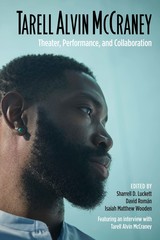
Contributors consider McCraney’s innovations as a playwright, adapter, director, performer, teacher, and collaborator, bringing fresh and diverse perspectives to their observations and analyses. In so doing, they expand and enrich the conversations on his much-celebrated and deeply resonant body of work, which includes the plays Choir Boy, Head of Passes, Ms. Blakk for President, The Breach, Wig Out!, and the critically acclaimed trilogy The Brother/Sister Plays: In the Red and Brown Water, The Brothers Size, and Marcus; Or the Secret of Sweet, as well as the Oscar Award–winning film Moonlight, which was based on his play In Moonlight Black Boys Look Blue.
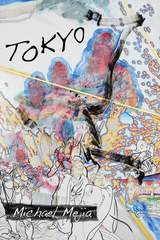
TOKYO is an incisive, shape-shifting tour de force, a genre-bending mix of lyric prose, science fiction, horror, and visual collage exploring the erotic undercurrents of American perceptions of Japanese culture and identity.
By turns noir, surreal, and clinical in its language and style, TOKYO employs metaphors of consumption, disease, theater, gender fluidity, monstrousness, and ecological disaster in intertwined accounts touching on matters of cultural appropriation, fiction's powerful capacity to produce immersive realities, and the culturally corrupting late capitalist excesses that entangle both the United States and Japan.
The novel opens with a fantastic, slyly comic report written by a Japanese executive, describing the anomalous bluefin tuna his company purchased at Tokyo’s iconic fish market, as well as the dissolution of the executive’s marriage to his Japanese-American, or Sansei, wife. But when an American writer—whose own Sansei wife was previously married to a Japanese executive—begins investigating the report’s author and his claims, assisted by a mysterious Japanese correspondent the American suspects may once have been his wife’s lover, identities begin to scramble until it’s uncertain who is imagining who, and who is and isn’t Japanese. Meanwhile, a secret plot to establish pure Japaneseness through the global distribution of genetically engineered bluefin tuna seems to be rushing toward its conclusion like a great wave.
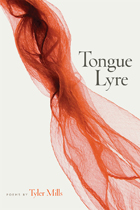
In Tongue Lyre, Tyler Mills weaves together fragments of myth and memory, summoning the works of Ovid, Homer, and James Joyce to spin a story of violence and the female body. Introducing the recurring lyre figure in the collection—a voice to counter the violence—is Ovid’s Philomena, who, while cruelly rendered speechless, nonetheless sets the reader on an eloquent voyage to discover the body through music, art, and language. Other legendary figures making appearances within—Telemachos, Nestor, Cyclops, Circe, and others—are held up as mirrors to reflect the human form as home. In this dynamic collection, the female body and its relationship to the psyche traverse mythic yet hauntingly familiar contemporary settings as each presents not a single narrative but a progressive exploration of our universal emotional experience.
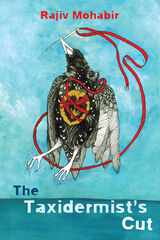
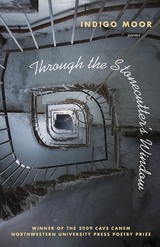
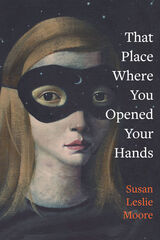

Winner of the 2023 CAAPP Book Prize from the University of Pittsburgh’s Center for African American Poetry and Poetics and Autumn House Press, Okwudili Nebeolisa’s debut poetry collection serves as an intimate exploration of the relationship between a Nigerian mother and son. Throughout the book, Nebeolisa navigates the guilt of starting a new life in the United States, far away from his home country and from his mother, who is battling cancer.
Depicting tender moments between mother and son, Terminal Maladies highlights how the poet and his family shoulder the responsibility of caregiving together and how Nebeolisa works to bridge the physical and emotional distance between them. He reflects on the reasons behind his Nigerian mother’s withholding, questioning her need to act bravely alongside his own assumed role as her protector.
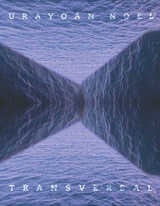
Featuring Noel’s bilingual playfulness, intellect, and irreverent political imagination, Transversal contains personal reflections on love, desire, and loss filtered through a queer approach to form, expanding upon Noel’s experiments with self-translation in his celebrated collection Buzzing Hemisphere/Rumor Hemisférico. This collection explores walking poems improvised on a smartphone, as well as remixed classical and experimental forms. Poems are presented in interlocking bilingual versions that complicate the relationship between translation and original, and between English and Spanish as languages of empire and popular struggle. The book creatively examines translation and its simultaneous urgency and impossibility in a time of global crisis.
Transversal seeks to disrupt standard English and Spanish, and it celebrates the nonequivalence between languages. Inspired by Caribbean poet and philosopher Édouard Glissant, the collection celebrates Caribbean practices of creolization as maximalist, people-centered, affect-loaded responses to the top-down violence of austerity politics. This groundbreaking, modular approach to poetic translation opens up alternative ways of reading in any language.

The poems in the first section, torch songs, hover near a heartbreaking lyricism as they reckon with political histories, landscapes, and loss. As she writes in this section, there is truly “nothing in this life like being blind in Granada.” The sonnet crown that comprises the next section, tango liso, plots a history of cultural inheritance and renewal, weaving back and forth in time and spanning Argentina, Spain, and the United States. Here the reader encounters Eva Perón alongside Katharine of Aragon and Billie Holiday. The final section, choir, commemorates sites of pilgrimage in Latvia, West Germany, and Spain, among other places. In this extended contemplation of cathedral spaces, Paegle interrogates the boundary between the sacred and the secular, silence and song. What emerges from this diverse collection is a sensual and allusive space where music and memory coincide.
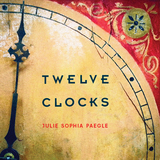
As the reader is transported from Las Vegas to Argentina to the landscapes of Ancient Greek epic poetry, Twelve Clocks explores the connections between song, ancestry, family, loss, and time. If the imagery of the collection hints Troy might be an image of the wrecked Argentine economy under neoliberal economics, the poems eschew the abstractions of politics in favor of a vivid and sensuous lyricism.
The interconnectivity of the poems in Twelve Clocks is mirrored by different elements’ transcendence throughout the collection. The clock that goes missing in one poem turns up in another, characters vanish and reappear, matter destroyed in one poem reoccurs as energy in another, and then matter and energy both go missing. Taken together, the poems confront the literary legacy of Western poetic tradition and our shared future.
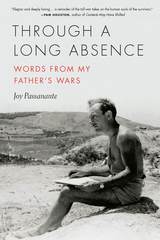
Against the backdrop of World War II, Joy Passanante’s touching new book, Through a Long Absence: Words from My Father’s Wars, is the saga of a wartime medical unit, a passionate long-distance love, the making of a surgeon, and two first-generation American families. Told through her father’s eyes—drawing on hundreds of his letters to his beloved wife, his four-volume wartime diary, and his paintings—Passanante masterfully recreates his wartime journey and physically retraces his steps more than sixty years later in an attempt to understand a time in her parents’ lives that they’d spoken about very little.
More than just a World War II story, Through a Long Absence delves into one man’s past to explore his personal wars: a stint as a child bootlegger, a marriage between newlyweds separated by continents and strained by years apart, and his struggle late in life with his own mind. The narrative propels readers to surprising places—from a freight train through North Africa to an underground St. Louis distillery during Prohibition, from a young couple’s forbidden courtship to the chaos of surgical tents under fire in Normandy, from an underground trove of priceless artwork hidden by the Nazis to Jewish New Year services in Paris a week after its liberation. Through a Long Absence is a love story, an honest look into one man’s life, and a daughter’s moving quest to rediscover her father years later through his own words.

Named one of New York Public Library's Best Books, 2023
Winner, 2023 Miller Williams Poetry Prize
To Be Named Something Else is a high-spirited celebration of Black matriarchy and lineage—both familial and literary. Centering the coming-of-age of Black femmes in Harlem, Shaina Phenix’s debut collection, in the words of series judge Patricia Smith: “enlivens the everyday—the everyday miraculous, the everyday hallelujah, the numbing everyday love, the everyday risk of just being Black and living. There is absolutely nowhere these poems aren’t—we’re dancing and sweating through our clothes, terminating a pregnancy in a chilled room of white and silver, finally gettin’ those brows threaded and nails did, practicing gettin’ the Holy Ghost, sending folks to their rest, having babies, listening carefully to the lessons of elders, and sometimes even talking back. . . . To Be Named Something Else is a book of reason and reckoning, substance and shadow. It’s tender and wide-aloud and just about everything we need right now, when both reason and reckoning are in such woefully short supply.” Phenix’s full-throated poetry, with its “superlative combination of formalism and funk,” is assuredly something else.
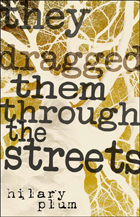
They Dragged Them Through the Streets is a bold meditation on idealism, anger, and the American home front’s experience of today’s wars. This is an innovative work in the great tradition of war literature and a singular chronicle of one generation’s conflicts.

As the Garrisons struggle to communicate with each other, as they battle self-doubts and self-sabotage, they too draw on a fierce shared strength that allows them to push back at the reality that’s been handed to them. Each Garrison fights to hold on to their dignity—often through daily acts of grace and good humor, to say nothing of quiet perseverance—and to prove to themselves and each other that they shouldn’t be underestimated.
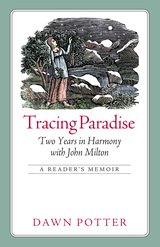
Tracing Paradise: Two Years in Harmony with John Milton is her memoir of that long task. Over the course of twelve chapters, Potter explores her very personal response to Milton and Paradise Lost, tracing the surprising intersections between a seventeenth-century biblical epic and the routine joys and tragedies of domestic life in contemporary rural Maine. Curious, opinionated, and eager, she engages with the canon on mutable, individual terms. Though she writes perceptively about the details and techniques of Milton's art, always her reactions are linked to her present-tense experiences as a poet, small-time farmer, family member, and citizen of a poor and beleaguered north-country town.
A skilled and entertaining writer, Potter is also a wide-ranging and sophisticated reader. Yet her memoir is not a scholarly treatise: her enthusiasms and misgivings about both Milton and Paradise Lost ebb and flow with the days. Tracing Paradise reminds us that close engagement with another artist's task may itself be a form of creation. Above all, Potter's memoir celebrates one reader's difficult yet transformative love affair with Milton's glorious, irritating, inscrutable masterpiece.
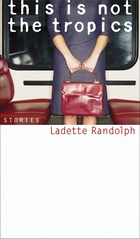
The stories collected in This Is Not the Tropics come from the geographic center of a divided nation, and its protagonists evoke a split personality—one half submerged in America’s own diehard mythology, the other half searching to escape tradition. Together they form a portrait of the Plains that is both quirky and poignant. While the themes in this collection are familiar—love and betrayal, loneliness and regret, the needs of the individual versus the needs of the community—the tales themselves are startling and new. Whether it is the story of an eccentric out-of-work accordion player; a woman ending a long marriage against the backdrop of a visit from her failing mother; a young girl who wishes to solve a mystery until real mystery enters her life; or all of the men in a small Nebraska town who annually compete in a hilariously earnest beauty pageant, these are tales that speak of the lives lived in the small towns, the prairie cities, and on the dirt roads off blue highways in the middle of nowhere and everywhere.

Jennifer Richter presents a series of poems that explore the many facets of the term "threshold." Throughout the collection, the narrator experiences several acts of threshing, or separating—from birth and the small yet profound distances that part a mother and child, to the separation caused by illness and its toll on relationships. At the same time, she is progressively gathering, piecing together the remnants of her life, collecting her children into her arms, and welcoming a future without pain. Pain is often present in these poems, as the narrator frequently confronts her own threshold for enduring a ravaging illness. Her harrowing struggle through recovery is chronicled by a poem at the end of each section, tracing her powerful journey from deep suffering to a fragile yet steadfast sense of hope.
These gripping lyric and prose poems explore duality in its many forms: the private, contemplative world versus a world of action; the mirror sides of health and sickness; the warmth of a June sun and the deep, long nights of winter; mother and child; collecting and letting go. From the comfort of a morning bed at home to the desperate streets of Hanoi, Threshold is a searing portrait of healing, the courage it takes to bridge the gulfs that divide, and the wonder of the ties that bind.
What Is My Body Without You?
My son’s pajamas unsnapped
on the floor: small husk
of his body relaxing on its back,
legs and sleeves still filled
with his rush. This part of him
hasn’t outgrown my arms
and sometimes lets me lift
him up our steep stairs,
carry him to bed and pull
his shade against the gray
thin winter sky like milk
my daughter wakes up wanting.
In the last days of lifting her
to my breast, I fill her less
than the air already gone
from my son’s flat shape.
Twice like that I have lain back,
the doctor opening me
along the same clean seam.
Each time I was watching:
with a few tugs the child
was out, naked and heading
toward other hands, each child
cut loose before I knew it.
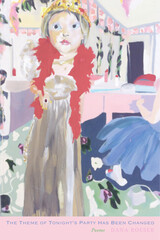
Roeser brings a host of characters into her poems—a Catholic priest raging against the commercialism of Mother's Day, the injured tennis player James Blake, a man struck by lightning, drunk partygoers, an ex-marine, Sylvia Plath's son Nicholas Hughes, a neighbor, travelers encountered in airport terminals, various talk therapists—and lets them speak. She records with high fidelity the nuances of our ordinary exigencies so that the poems become extraordinary arias sung by a husky-voiced diva with coloratura phrasing to die for, "the dark notes" that Lorca famously called the duende. The book is infused with the energy of misfortune, accident, coincidence, luck, grace, panic, hilarity. The characters and narrator, in extremis, speak their truths urgently.

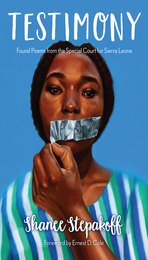
Sierra Leone’s devastating civil war barely caught the attention of Western media, but it raged on for over a decade, bringing misery to millions of people in West Africa from 1991 to 2002. The atrocities committed in this war and the accounts of its survivors were duly recorded by international organizations, but they run the risk of being consigned to dusty historical archives.
Derived from public testimonies at a UN-backed war crimes tribunal in Freetown, this remarkable poetry collection aims to breathe new life into the records of Sierra Leone’s civil war, delicately extracting heartbreaking human stories from the morass of legal jargon. By rendering selected trial transcripts in poetic form, Shanee Stepakoff finds a novel way to communicate not only the suffering of Sierra Leone’s people, but also their courage, dignity, and resilience. Her use of innovative literary techniques helps to ensure that the voices of survivors are not forgotten, but rather heard across the world.
This volume also includes an introduction that explores how the genre of “found poetry” can serve as a uniquely powerful means through which writers may bear witness to atrocity. This book’s unforgettable excavation and shaping of survivor testimonies opens new possibilities for speaking about the unspeakable.
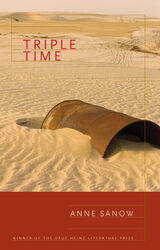
The characters in the linked stories in Triple Time are living an uneasy mesh of two divergent cultures, in a place where tradition and progress are continually in flux. These are tales of confliction-of old and new, rich and poor, sexual repression and personal freedom. We experience a barren yet strangely beautiful landscape jolted by sleek glass apartment towers and opulent fountains. On the fringes of urbanity, Bedouins traverse the desert in search of the next watering hole.
Beneath a surface of cultural upheaval, the stories hold deeper, more personal meanings. They tell of yearnings-for a time lost, for a homeland, for belonging, and for love. Anne Sanow reveals much about the culture, psyche, and essence of life in modern Saudi Arabia, where Saudis struggle to keep their traditions and foreigners muddle through in search of a quick buck or a last chance at making a life for themselves in a world that is quickly running out of hiding places.
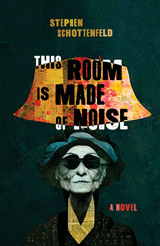
Feeling both delighted by and guilty about his good fortune, Don returns most of the money to the original owner, Millie Prall. He also offers to make a few repairs around her deteriorating house—making it easier and safer for her to navigate the space in the wake of her husband's death. As Millie’s dementia worsens, Don finds his life more and more enmeshed with hers, driving her to medical appointments, shopping for her groceries, cooking her meals, handling her finances, and increasingly overseeing her care—while simultaneously trying to repair his relationships with his father, his ex-wife, and his stepkids.
In this quietly mesmerizing novel, no one, including the protagonist, is ever entirely sure of their motivations. Existing in the liminal spaces between altruism and greed, This Room Is Made of Noise deftly explores the shades of gray that lie between our desires and our demons.
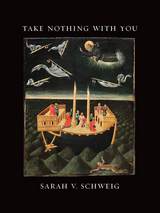
These poems operate on the notion that the lyric can be discovered in scattered headlines, office-wide emails, road signs—the detritus of the everyday. But a poem doesn’t stop at found fragments; it creates something from them. These poems question and re-question what can be truthfully said, rediscovering the lyric in the very process of thinking, revising, and re-envisioning.
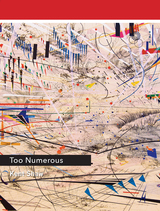
Grappling with an information culture that is both intimidating and daunting, Kent Shaw considers the impersonality represented by the continuing accumulation of personal information and the felicities—and barriers—that result: "The us that was inside us was magnificent structures. And they weren't going to grow any larger."

Winner, Arab American National Museum's 2015 George Ellenbogen Poetry Award
Tahrir Suite is a book-length poem that contemplates immigration, homeland, and diaspora in the twenty-first century. The poem, inspired by recent events in Egypt, cycles through the journey of two Egyptians moving across borders, languages, cultures, landscapes, and political systems while their life in the U.S. diaspora evolves and their home country undergoes revolutionary change.
Written from a perspective and about a place that is virtually unexplored in contemporary American poetry, Tahrir Suite works to capture the complicated essence of what it means to be from a specific place that is experiencing such radical change and how our understandings of “home” and “place” constantly evolve. Tahrir Suite is a musical meditation on what it means to be a global citizen in contemporary times.
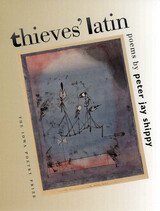
“Ah, writ happens.” Like the con men who rely on thieves' Latin to ply their trade, the poems in Peter Jay Shippy's award-winning collection don't play well with other poems. They are difficult. They rave. They are unsettling and blunt. They crash cars and ride tsunamis and hitch rides on tugs. They also provide a contemporary, ironic, and tender view of America, all the while layering wordplay, cleverness, and sentiment.
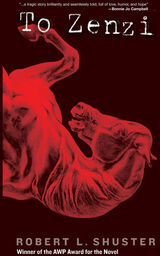
Shuttling between the insanity of the Führer’s bunker and the chaotic streets, Tobias must contend with a scheming Martin Bormann, a deceitful deserter, the Russian onslaught, and his own compounding despair—all while falling for Zenzi, a girl of Jewish descent (a mischling) who relays secret news of death camps and convinces Tobias to make a treacherous escape to the Americans.
With thrilling risks in plotting and prose, with moments of pathos and absurdity, Shuster richly conjures a mad, tragic world.
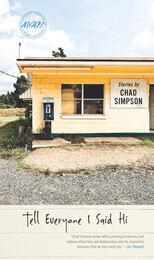
Poignant, fresh, and convincing, these are stories of women who smell of hairspray and beer and of landscapers who worry about their livers, of flooded basements and loud trucks, of bad exes and horrible jobs, of people who remain loyal to sports teams that always lose. Displaced by circumstances both in and out of their control, the characters who populate Tell Everyone I Said Hi are lost in their own surroundings, thwarted by misguided aspirations and long-buried disappointments, but fully open to the possibility that they will again find their way.
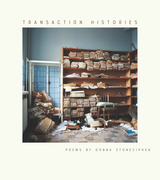
Reveling in the paradox of the formal prose poem, Donna Stonecipher’s Transaction Histories gathers together six series of poems that explore the disobedient incongruities of aesthetics and emotions. Stonecipher’s carefully sculpted forms and exacting language are held in tension with an unruly imagination to provoke a vision of experience densely layered with bodies impinging upon and altering each other, engaging in transactions that unfold in poetically complex and emotionally startling ways. By turns wry and melancholic, playful and acerbic, erotically charged and politically skeptical, Stonecipher’s poems marry a deeply felt lyricism to a fascination with the mechanisms of narrative. The result is akin to Roland Barthes’s notion of “the novelistic”: writing that flirts with the gestures and spaces of the novel without the trappings of plot, character, or action. Narrative fragments dart in and out of sight, spectral figures and motifs recur in fugal patterns, and habits of ruthless observation are brought to bear on the details of both intimate life and social organization.
Stonecipher lays claim to a stylistic achievement and vision that are entirely her own, transparent and elusive, casual in address and rigorous in design. Whether training its eye on fetishized polar bears, illegal garbage dumping, or ideological debates around rose chintz wallpaper, Transaction Histories tracks the fitful and tragicomic relationships that exist among objects, landscapes, texts, and people, and lays bare the ways in which our transactions keep our lives going.
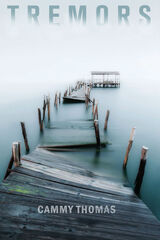
Thomas’s short, musical poems make stops in the terrains of childhood, difficult and somewhat violent; middle life, with parents breaking down and children moving away into their own lives; and later life when memory falters but passion does not.
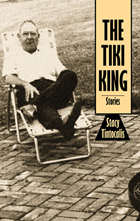
A Lebanese housewife, a former horror-film maker, and a cantankerous Russian librarian are among the inhabitants of the offbeat world found in this impressive debut collection. Stacy Tintocalis’s stories take us from a defunct women’s shelter off a Missouri country road to the streets of low-income Hollywood, where her characters yearn for the love that is always just out of reach.
The title story explores the conflicted emotions an adolescent boy feels toward a father who obsessively returns to his childhood home. In “Too Bad about Howie,” a divorced poet finds comfort in stolen moments with his ex-wife’s dog. Despite their longing for connection, these characters are victims of their own foibles, trapped in terrifying moments of psychic violence that risk driving away the very people they love.
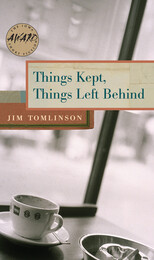
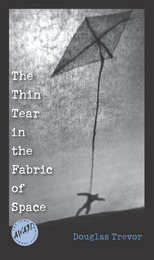
The Thin Tear in the Fabric of Space gathers stories about coping with grief, trying to love people who have died, and—more broadly—leaving old versions of the self behind, sometimes by choice and sometimes out of necessity. In each of the nine stories, Douglas Trevor’s characters are forced to face uncomfortable realities. For Elena Gavrushnekov in the title story, that means admitting after the death of her beloved that she still longs for contact with other human bodies. For Peter in “Central Square,” it is realizing that, like his deceased father before him, he is drinking himself to death. Unable to confront his incapacitated mother and the memory of the plane crash that killed his father, Edwin Morris in “Saint Francis in Flint” is compelled to acknowledge that his saintly aspirations are not what they appear to be, while Sharon Mackaney in “The Surprising Weight of the Body's Organs” struggles with uncontrollable outbursts of rage in the wake of her young son’s death.
In moments of great pain and loss, when self-expression seems impossible and terribly useless, the characters in these stories nonetheless discover the tenderness of others. In “The River,” the narrator finds that the friendship he has forged with a French girl with whom he can only just communicate has bred intense, almost intuitive compassion, while in “Fellowship of the Bereaved,” the disconsolate brother of the deceased sister who occupies the empty center of the story uncovers not only anger in his parents but also empathy and humor. As these characters persevere in their own lives, they do so mindful of, and humanized by, the experiences of having seen people they know and love slip unexpectedly into the thin tear in the fabric of space: that quiet chasm that so resolutely separates the living from the dead.

Crafted with lines from her late father’s letters, Jennifer Tseng’s Thanks for Letting Us Know You Are Alive is a portrait of an immigrant, a rootless person whose unspoken loss—that of his native geography, family, traditions, language—underlies every word. Though her father’s first language was Mandarin, for more than twenty years he wrote these letters in English, so that she could understand them. Some are riddled with errors, some nearly unintelligible. Lines from his letters appear as titles and are scattered throughout the poems, blending voices of father and daughter. This collection enacts what it means to lose someone and commune with them simultaneously—the paradox of grief and all it gives us.



A twelve-year veteran of the fireline, Morgan believes he knows what his teenage half-brother (Jeremy) needs to do to shrug off boyhood: spend a single season fighting forest fires to earn money for auto mechanic school. But when Jeremy joins the Ruby Mountain Hotshots and earns the respect and admiration of their fire boss (Bailey), Morgan must battle his own demons before they destroy him.
Meanwhile, life hasn’t been easy on Jacklynn—she longs to escape the small town in Montana where she has lived her whole life and reunite with her daughter and grandson in Tucson. Jacklynn wants to make up for a lifetime of missteps by protecting the boy and making sure her daughter stays on course. On the same day that an attractive stranger waltzes into her life, an opportunity for life-changing money presents itself in the form of a dozen pregnant heifers. The only trouble is, they aren’t hers—not yet, anyway.
Morgan and Jacklynn’s paths cross when lightning ignites a blaze in the untamed Montana wilderness, and their choices force each other into
the fury.
Set against the backdrop of wildfires raging across the West and the firefighters who continue to put their lives on the line, This Here Is Devil’s Work explores how love and loneliness can sour, and how they can eventually lead to desperate and self-destructive acts even for those people we consider heroic.
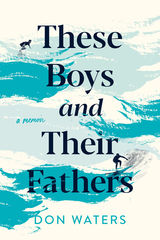
These Boys and Their Fathers touches on Waters’s early life with his single mother—and her string of dysfunctional men—and his later search for and encounters with his father, but it quickly expands into a gripping account of the life of a 1930s pulp writer, also named Don Waters, with whom Waters becomes obsessed. This wildly original book blends memoir, investigative reporting, and fiction to sort out difficult aspects of family, masculinity, and what it means to be a father.

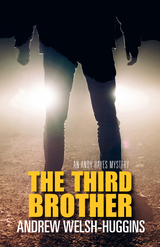
It’s a violent encounter that private investigator Andy Hayes could have done without. One minute he’s finishing up some grocery shopping ahead of a custody visit with his sons. The next, he must come to the rescue of a Somali American mother and her young children as anti-immigrant bullies torment them.
Grateful for his intervention, the Somali community hires Andy to find a missing teenager who vanished without a trace and is now accused of plotting a terror attack in his adopted hometown of Columbus, Ohio. The government is certain that nineteen-year-old Abdi Mohamed followed in the footsteps of his brother, who died in Syria a few months earlier in a jihadi assault. But Mohamed’s family isn’t convinced, describing a soccer-loving American kid who renounced his brother’s actions and planned to attend college in the fall and become a diplomat someday.
Soon Andy is fending off fed-up FBI agents and dueling with a mysterious foe with links to the white supremacist movement. As he draws ever closer to the truth behind Mohamed’s disappearance, Hayes stumbles onto a conspiracy that could put hundreds of lives in danger, including his own two boys.
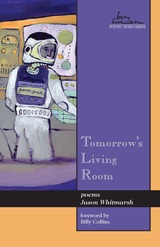
Volume 13 in the Swenson Award Series, Tomorrow's Living Room offers a pleasantly disorienting verbal territory. The collection is alternately wry and dark, hopeful and bleak, full of unexpected light and laugh-out-loud incongruities. We begin to see that the shape and the furniture of Jason Whitmarsh's world reflect our own (they may in fact be universal), but we're considering them through completely new terms of engagement.
Selected by, and with a foreword by, Billy Collins.
The annual Swenson competition, named for May Swenson, honors her as one of America’s most provocative and vital writers. In John Hollander’s words, she was "one of our few unquestionably major poets."
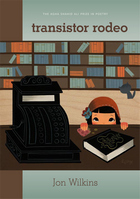
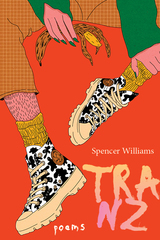
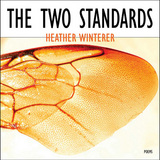
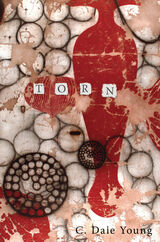

The essays investigate and meditate on a broad array of related topics, including drone strikes, tear gas, and military intervention; the sugar trade, the Dutch blackface celebration of Zwarte Piet, and constructions of whiteness in Europe and the U.S.; and visual arts of Russian avant-garde painters, an Iraqi choreographer living in Belgium, and German choreographer Pina Bausch.
This is a lyrical, timely book deeply salient to the political moment we continue to find ourselves in: a moment of incredible anti-refugee and anti-immigrant sentiment, a moment of xenophobic and misogynistic violence.
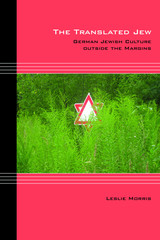
Morris explores the myriad acts of translation, actual and metaphorical, through which Jewishness leaves its traces, taking as a given the always provisional nature of Jewish text and Jewish language. Although the focus is on contemporary German Jewish literary cultures, The Translated Jew also turns its attention to a number of key visual and architectural projects by American, British, and French artists and writers, including W. G. Sebald, Anne Blonstein, Hélène Cixous, Ulrike Mohr, Daniel Blaufuks, Paul Celan, Raymond Federman, and Rose Ausländer.
In thus realigning German Jewish culture with European and American Jewish culture and post-Holocaust aesthetics, this book explores the circulation of Jewishness between the United States and Europe. The insistence on the polylingualism of any single language and the multidirectionality of Jewishness are at the very center of The Translated Jew.
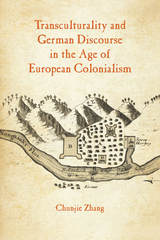

Theory as Practice was first published in 1997. Minnesota Archive Editions uses digital technology to make long-unavailable books once again accessible, and are published unaltered from the original University of Minnesota Press editions.
In light of recent, dramatic revisions in criticism of European-particularly German-Romanticism, this anthology brings together key texts of the movement, especially those written in the last quarter of the eighteenth century by a small, influential circle centered at Jena.
In their introductory essays, the editors locate writings by Fichte, Schelling, Novalis, August Wilhelm Schlegel, and Friedrich Schlegel, among others, in this context. The selections include extensive excerpts from the correspondence of the Jena Romantics, their commentaries on each other's work, their most pertinent essays, fragments, and dialogues as well as diary entries and reviews. These works, together with the editors' articulation and elaboration of their significance, provide a new perspective on the provenance of postmodern thought and literary theory.
Jochen Schulte-Sasse is professor of German and comparative literature at the University of Minnesota and coeditor (with Wlad Godzich) of the Theory and History of Literature series at the University of Minnesota Press. Haynes Horne (University of Alabama), Andreas Michel (Indiana University), Assenka Oksiloff (New York University), Elizabeth Mittman (Michigan State University), Lisa C. Roetzel (University of Rochester), and Mary R. Strand each received a Ph.D. from the University of Minnesota.
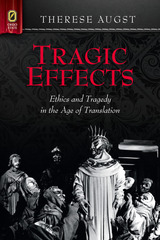
Tragic Effects: Ethics and Tragedy in the Age of Translation confronts the peculiar fascination with Greek tragedy as it shapes the German intellectual tradition, with particular focus on the often controversial practice of translating the Greeks. Whereas the tradition of emulating classical ideals in German intellectual life has generally emerged from the impulse to identify with models, the challenge of translating the Greeks underscores the linguistic and historical discontinuities inherent in the recourse to ancient material and inscribes that experience of disruption as fundamental to modernity.
Friedrich Hölderlin’s translations are a case in point. Regarded in his own time as the work of a madman, his renditions of Sophoclean tragedy intensify dramatic effect with the unsettling experience of familiar language slipping its moorings. His attention to marking the distances between ancient source text and modern translation has granted his Oedipus and Antigone a distinct longevity as objects of discussion, adaptation, and even retranslation. Cited by Walter Benjamin, Martin Heidegger, Bertolt Brecht, and others, Hölderlin’s Sophocles project follows a path both marked by various contexts and tinged by persistent quandaries of untranslatability.
Tragedy has long functioned as a cornerstone for questions about ethical life. By placing emphasis on processes of translation and adaptation, however, Tragic Effects approaches the question of ethics from a perspective informed by recent discourse in translation studies. Reconstructing an ancient text in this context requires negotiating the difficult tension between comprehending the distant past and preserving its radical singularity.
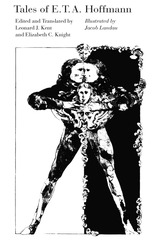
"The editors have made an excellent selection, and the result is a book of great distinction."—Denis Donoghue, New York Review of Books
"The translators have proved fully equal to all the challenges of Hoffmann's romantic irony and his richly allusive prose, giving us an accurate and idiomatic rendering that also retains much of the original flavor."—Harry Zohn, Saturday Review
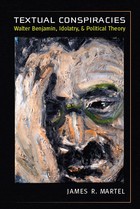
“This is a sophisticated and fascinating argument written in a very enjoyably entertaining style. It is hard for me to see how readers initially interested in these texts will not be ‘swept off their feet’ by the core assertions of this author, and the devastatingly comprehensive way in which he demonstrates those arguments.”
—Brent Steele, University of Kansas
In Textual Conspiracies, James R. Martel applies the literary, theological, and philosophical insights of Walter Benjamin to the question of politics and the predicament of the contemporary left. Through the lens of Benjamin’s theories, as influenced by Kafka, of the fetishization of political symbols and signs, Martel looks at the ways in which various political and literary texts “speak” to each other across the gulf of time and space, thereby creating a “textual conspiracy” that destabilizes grand narratives of power and authority and makes the narratives of alternative political communities more apparent.
However, in keeping with Benjamin’s insistence that even he is complicit with the fetishism that he battles, Martel decentralizes Benjamin’s position as the key theorist for this conspiracy and contextualizes Benjamin in what he calls a “constellation” of pairs of thinkers and writers throughout history, including Alexis de Tocqueville and Edgar Allen Poe, Hannah Arendt and Federico García Lorca, and Frantz Fanon and Assia Djebar.
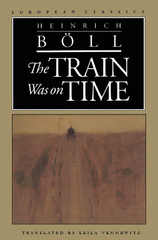

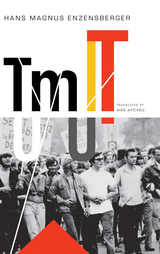
Hans Magnus Enzensberger, widely regarded as Germany’s greatest living poet, was already well known in the 1960s, the tempestuous decade of which Tumult is an autobiographical record. Derived from old papers, notes, jottings, photos, and letters that the poet stumbled upon years later in his attic, the volume is not so much about the man, but rather the many places he visited and people whom he met on his travels through the Soviet Union and Cuba during the 1960s. The book is made up of four long-form pieces written from 1963 to 1970, each episode concluding with a poem and postscript written in 2014. Translated by Mike Mitchell, the book is a lively and deftly written travelogue offering a glimpse into the history of leftist thought. Dedicated to “those who disappeared,” Tumult is a document of that which remains one of humanity’s headiest times.

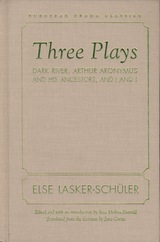
Famous for her poetry and infamous for her bohemian lifestyle, as well as her association with political radicals, Else Lasker-Schüler (1869–1945) is only now returning to just renown as one of the few women writers within the Expressionist movement of the early twentieth century. These plays-Dark River, Arthur Aronymus and His Ancestors, and I and I-in Jane Curtis's fluid translation, allow readers of English to experience the radically avant-garde style that put Lasker-Schüler on a par with Brecht in her day, as well as the passionate treatment of questions of gender, ethnicity, and sexuality that placed her well ahead of her time. Lasker-Schüler's plays reflect her unusual life among the Berlin Moderns of the 1910s and 20s. The daughter of a well-to-do Jewish banker and builder, Else Schüler gave up her bourgeois existence as a doctor's wife for the artistic, social, and political uncertainties that would characterize the rest of her life. Many of her finest poems and plays were written amidst the cafe society of Berlin, where she knew some of the great expressionist artists of the period. The death of her beloved son in 1927, which led her to intense introspection and reflection on the Jewish tradition, especially mysticism and the Kabbalah, also marked the beginning of Lasker-Schüler's years of tragedy, loss, and dislocation, culminating in her flight from Nazi Germany to Switzerland and then Jerusalem, where she ended her days as an eccentric pauper.
The plays in this volume mark Lasker-Schüler's movement away from the traditional aesthetic canon, revealing a unique formal development from naturalistic expressionist episodes in the lyrical Dark River to a historicizing politicization of the theater in Arthur Aronymous to the forms of montage and "epic" presentations in I and I. A short preface by Inca Molina Rumold places each play in its historical, biographical, and artistic context.

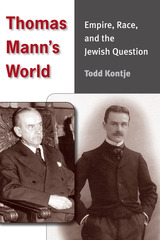
Praise for Todd Kontje
". . . a refreshing example of what literary discourse can teach us about national identity, even historical events and trends---those aspects of a nation's evolving heritage and tradition usually reserved for other disciplines."
---Colloquia Germanica
"Kontje has pulled off the amazing feat of a grand narrative: from the epic literature of the Middle Ages to very recent texts on the emerging multicultural Germany. Kontje's grand narrative, it should be noted, is not at all simplistic or reductionistic. He gets at the individual texts in complex ways . . . he displays an enviable erudition and scholarship, tracing lines through centuries when most scholars today limit themselves to narrow specialties."
---Russell Berman, Stanford University
Exactly how Thomas Mann's significance registers with the scholarly and general public has been subject to change. For many, Mann retains the aura of the "good German," the Nobel Laureate who was the most vocal leader of the exile community against Hitler and the Third Reich. His diaries, however, contain some rather nasty comments about Mann's many Jewish friends and acquaintances, inspiring a renewed look at the negative Jewish stereotypes in his fiction. The man once venerated as a voice of reason and cosmopolitan tolerance against racist bigotry has been eviscerated as a clandestine anti-Semite.
Thomas Mann's World is a comprehensive reevaluation of Mann as the representative German author of the Age of Empire, placing Mann's comments about Jews and the Jewish characters in his fiction in the larger context of his attentiveness to racial difference, both in the world at large and in himself. Kontje argues that Mann is a worldly author---not in the benign sense that he was an eloquent spokesman for a pan-European cosmopolitanism who had witnessed the evils of nationalism gone mad, although he was that, too---but in the sense of a writer whose personal prejudices reflected those of the world around him, a writer whose deeply autobiographical fiction expressed not only the concerns of the German nation, as he liked to claim, but also of the world in an era of imperial conquest and global conflict.
Todd Kontje is Professor of German and Comparative Literature and Chair of the German Department at the University of California, San Diego. He is the author of German Orientalisms (University of Michigan Press, 2004).
Jacket photographs: Thomas Mann, approximately 1900 and 1955, reproduced with the generous permission of the Buddenbrookhaus, Kulturstiftung Hansestadt Lübeck.
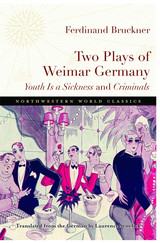
Though his fame was later eclipsed by peers such as Bertolt Brecht, Bruckner was the celebrity dramatist of his time, and a new generation of readers is discovering his groundbreaking plays known for their strong cultural critique and unflinching portrayals of social ills, outcasts, and misfits. Youth Is a Sickness (1924) explores the lives of Germany's "lost generation," those who grew up during and after the cataclysm of the First World War, devoid of hope and ideals, lost in a haze of sex and drugs. Criminals (1926) traces several court cases about a failed double suicide, theft, abortion, and homosexual blackmail, controversial topics for the audience of its time and even today. Its innovative staging and interwoven storylines illuminate the imposed social tensions and legal injustice faced by the characters.
In this expert translation, readers can see Bruckner as a public intellectual, a man committed to commenting on the fate of Germany; humane values; and the past, present, and future in his work. With an introduction by the translator, this volume will be the definitive version for readers, actors, playwrights, and scholars.
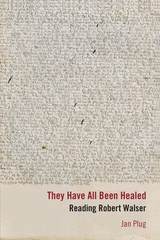

Uninitiated readers should consider Three Novellas a passport to the absurd, dark, and uncommonly comic world of Bernhard. Two of the three novellas here have never before been published in English, and all of them show an early preoccupation with the themes-illness and madness, isolation, tragic friendships-that would obsess Bernhard throughout his career. Amras, one of his earliest works, tells the story of two brothers, one epileptic, who have survived a family suicide pact and are now living in a ruined tower, struggling with madness, trying either to come fully back to life or finally to die. In Playing Watten, the narrator, a doctor who lost his practice due to morphine abuse, describes a visit paid him by a truck driver who wanted the doctor to return to his habit of playing a game of cards (watten) every Wednesday—a habit that the doctor had interrupted when one of the players killed himself. The last novella, Walking, records the conversations of the narrator and his friend Oehler while they walk, discussing anything that comes to mind but always circling back to their mutual friend Karrer, who has gone irrevocably mad. Perhaps the most overtly philosophical work in Bernhard's highly philosophical oeuvre, Walking provides a penetrating meditation on the impossibility of truly thinking.
Three Novellas offers a superb introduction to the fiction of perhaps the greatest unsung hero of twentieth-century literature. Rarely have the words suffocating, intense, and obsessive been meant so positively.
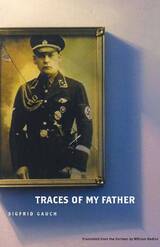
In 1979 Sigfrid Gauch published the groundbreaking Vaterspuren, (Traces of My Father), the first of the so-called father books about the relationships of postwar Germans with their parents. It inspired a new genre in German literature. Ever since, such writings have contributed greatly to Germany's ongoing struggle to overcome its own past.
This autobiographical novel is Gauch's attempt to come to terms with his father, Hermann Gauch, a physician who had joined the National Socialists in the 1920s, wrote six books of "race research" as a member of the SS, and to his dying day remained an unrepentant Nazi. The story alternates between the images of the elder Gauch's death and burial and the author's memories of childhood and adolescence.
Unlike many of the father books, however, Traces of My Father is less a political attack than a personal journey. Gauch, though honest about his father's monstrous actions and ideas, does not shirk their shared emotional bond. The result is a poignant attempt by a son to relive his father's notorious life and in doing so free himself from the man's influence.

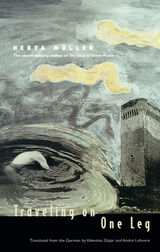
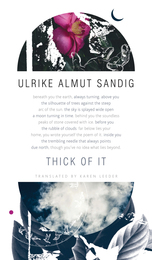
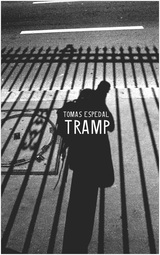
“Why travel?” asks Tomas Espedal in Tramp, “Why not just stay at home, in your room, in your house, in the place you like better than any other, your own place. The familiar house, the requisite rooms in which we have gathered the things we need, a good bed, a desk, a whole pile of books. The windows giving on to the sea and the garden with its apple trees and holly hedge, a beautiful garden, growing wild.”
The first step in any trip or journey is always a footstep—the brave or curious act of putting one foot in front of the other and stepping out of the house onto the sidewalk below. Here, Espedal contemplates what this ambulatory mode of travel has meant for great artists and thinkers, including Rousseau, Kant, Hazlitt, Thoreau, Rimbaud, Whitman, Giacometti, and Robert Louis Stevenson. In the process, he confronts his own inability to write from a fixed abode and his refusal to banish the temptation to become permanently itinerant.
Lyrical and rebellious, immediate and sensuous, Tramp conveys Espedal’s own need to explore on foot—in places as diverse as Wales and Turkey—and offers us the excitement and adventure of being a companion on his fascinating and intriguing travels.
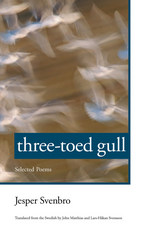
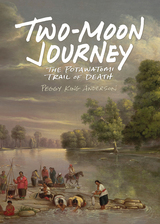
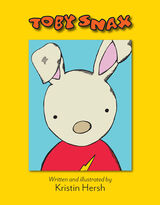
Toby Snax is a little bunny who’s reluctant to experience things away from home. When Mama asks him to join her on a trip, he needs a bit of encouragement. So Mama tells Toby about the wondrous things that await him out in the wide world, helping him to look forward to new adventures.
This charming, gentle book will resonate with any child who’s nervous about trying new things. The acclaimed musician Kristin Hersh created Toby Snax to encourage her son, Bodhi, to embrace the experiences of touring the world together while she performed both solo and with her bands 50 Foot Wave and Throwing Muses. The first edition of the book sold out immediately and has become highly collectible. This new edition makes Toby Snax available again for all fans of Hersh’s evocative storytelling, as well as children—or even adults—who need a little reassurance that the world is full of wonders.
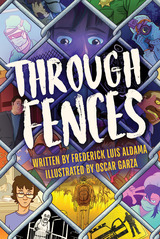
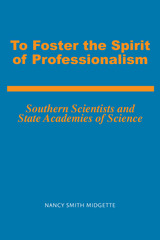
"A welcome contribution to the history of science in the South during the period since the Civil War. . . . By considering the academies in the larger context of scientific professionalism, South and North, Midgette has produced a surprisingly wide-ranging and informative study. This is overall a judicious and carefully researched work. The writing is straightforward and admirably clear, while the topic is effectively organized and presented. The book is a commendably original addition to local and regional history as well as history of American Science."
—Journal of American History
"Midgette’s study is thorough and well organized and should be consulted by anyone interested in American science and American higher education."
—Florida Historical Quarterly
"A very useful survey."
—Choice
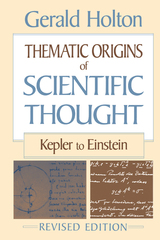
The highly acclaimed first edition of this major work convincingly established Gerald Holton’s analysis of the ways scientific ideas evolve. His concept of “themata,” induced from case studies with special attention to the work of Einstein, has become one of the chief tools for understanding scientific progress. It is now one of the main approaches in the study of the initiation and acceptance of individual scientific insights.
Three principal consequences of this perspective extend beyond the study of the history of science itself. It provides philosophers of science with the kind of raw material on which some of the best work in their field is based. It helps intellectual historians to redefine the place of modern science in contemporary culture by identifying influences on the scientific imagination. And it prompts educators to reexamine the conventional concepts of education in science.
In this new edition, Holton has masterfully reshaped the contents and widened the coverage. Significant new material has been added, including a penetrating account of the advent of quantum physics in the United States, and a broad consideration of the integrity of science, as exemplified in the work of Niels Bohr. In addition, a revised introduction and a new postscript provide an updated perspective on the role of themata. The result of this thoroughgoing revision is an indispensable volume for scholars and students of scientific thought and intellectual history.


Addresses the relationships between what modern-day experts say to each other and to their constituencies
Technical Knowledge in American Culture addresses the relationships between what modern-day experts say to each other and to their constituencies and whether what they say and do relates to the larger culture, society, and era. These essays challenge the social impact model by looking at science, technology, and medicine not as social activities but as intellectual activities.
READERS
Browse our collection.
PUBLISHERS
See BiblioVault's publisher services.
STUDENT SERVICES
Files for college accessibility offices.
UChicago Accessibility Resources
home | accessibility | search | about | contact us
BiblioVault ® 2001 - 2024
The University of Chicago Press



